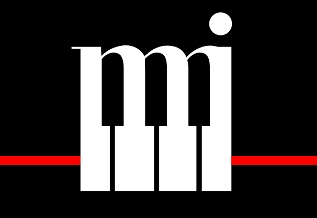NMI’s RESOURCE CENTER for musical theatre writers
Welcome to the musical theatre writers’ Resource Center.
This is a FREE page hosted by New Musicals Inc.
As of September 1, 2024, we are NO LONGER maintaining a list of Producers and Theatres, or a Contests Listing. We have found we are no longer able to keep those lists properly up-to-date.
BUT we encourage you to check out the offerings from our friends at MusicalWriters.Com who have a wealth of resources for musical theatre writers!
What you can still find on this page is:
- an idea library of thousands of royalty-free public domain stories and plots
- a glossary of musical theatre terms (with audio/video examples)
- access to short videos filled with tips and advice from NMI staff
- access to critical feedback options and format guidelines from NMI
Enjoy!
FORMAT LIKE A PRO |
Watch this FREE video to learn how to implement the FORMAT GUIDELINES specifically designed by New Musicals Inc. Make sure your script and score look professional and are ready to go into development. Want more tools to help you get your formatting right? *** VISIT OUR FORMATTING PRODUCTS PAGE *** |
LIBRARY OF IDEAS (Royalty Free) |
|
FREE ACCESS to a library of 1000+ downloadable royalty-free stories, plays, plots and other inspiring indeas we’ve found in the public domain for you. There’s a brief excerpt of every item in the library, so you can take a quick glance to see whether or not you want to read the whole text. In addition, the NMI staff has made annotations and recommendations for many of the titles in the library about their potential to become musicals. Save hundreds of hours of research and reading! |
Here are some random samples from our listings of story ideas in the public domain:
|
IMPROVE YOUR CRAFT |
New Musicals Inc. offers a whole series of professional online LABS for bookwriters, lyricists, and composers who are serious about improving their craft. This video is a FREE sample of one of the lecture videos from the all new Lyric Lab 1 - Fundamentals. |
NEED SOME FEEDBACK? |
Have you written a musical? Are you working on one? NMI has smart, professional, detailed dramaturges who will help you make sure you are on the strongest path to fulfilling the promise of your work. From video and audio feedback packages to one-on-one dramaturgical sessions, we have what you need to take the next step forward. We even have an annual contest that results in a workshop and concert reading in Los Angeles. "We really did appreciate all your help - you’ve got just the right tone to critique. It’s a matter of 'A Spoonful of Sugar Helps The Medicine Go Down'!” ~~George Stiles (Mary Poppins, Honk, Soho Cinders) |
MUSICAL THEATRE ARCHIVES |
Here's a sample of items from our vault of historical photos, and musical theatre trivia about events that happened THIS month in the past:
|
INSIDER TIPS AND ADVICE |
Here is one of our videos with insider tips and advice: |
GLOSSARY OF TERMS |
Here are some samples from our Glossary of definitions of musical theatre terms. We will be adding to this over time - as well as adding actual sample scores and sound recordings. Check back often!
|

Window card for By Jupiter . 1942. From the Billy Rose Theater Collection, New York Public Library |
Maybe you can tell me what we ought to do. --Otto Harbach |
